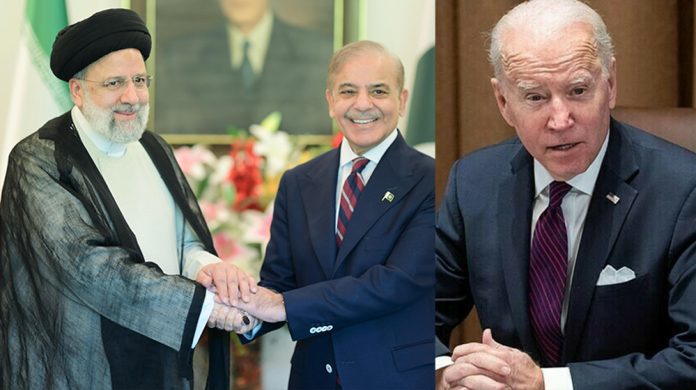Yesterday, The United States issued a subtle yet significant warning to Pakistan regarding its trade relations with Iran, raising concerns about potential economic implications.
Matthew Miller, the spokesperson for the US State Department, emphasized the United States’ pivotal role as one of Pakistan’s primary export markets. He cautioned that any disruption or complications in this trade dynamic, particularly with Iran, could have far-reaching economic consequences for Pakistan.
Miller went on to specifically advise Pakistan against entering into trade agreements or collaborations with Iran, highlighting the potential risk of facing sanctions from the United States.
His statement, “If you’re thinking about doing business with Iran, think about the possible consequences of sanctions,” was a clear and unambiguous signal of the US’s position on such trade engagements.
While Miller refrained from directly mentioning Pakistan by name, he underscored the enduring economic partnership and investment ties between the United States and Pakistan.
He pointed out that the United States has been a significant investor in Pakistan for many years, emphasizing the mutual economic benefits and shared interests that have cultivated a robust bilateral relationship over time.
In response to inquiries about Pakistan’s recent trade initiatives with Iran, Miller reiterated the potential hazards associated with conducting business with Iran.
He stressed that countries involved in trade with Iran could face sanctions from the United States, further noting that the US typically does not provide advance warnings about impending sanctions.
Concurrently, on the same day, Pakistan and Iran unveiled plans to substantially boost their bilateral trade volume, targeting a trade value of $10 billion.
Following a high-level meeting in Islamabad, Iranian President Ebrahim Raisi expressed dissatisfaction with the existing trade volume between the two nations and called for its expansion.
Both countries also inked eight agreements and Memoranda of Understanding (MoUs) across various sectors, encompassing areas such as security cooperation, judicial assistance in civil matters, and veterinary and animal health collaboration.
These developments underscore the intricate and nuanced landscape of international trade and diplomacy, particularly within the framework of regional geopolitics, economic partnerships, and sanctions regimes.
The United States’ cautionary stance towards Pakistan serves as a poignant reminder of the complexities and considerations inherent in managing international trade relations.
Pakistan and Iran’s collaborative endeavors reflect their shared commitment to enhancing bilateral ties and exploring new avenues for economic cooperation, even in the face of potential external challenges and pressures.


